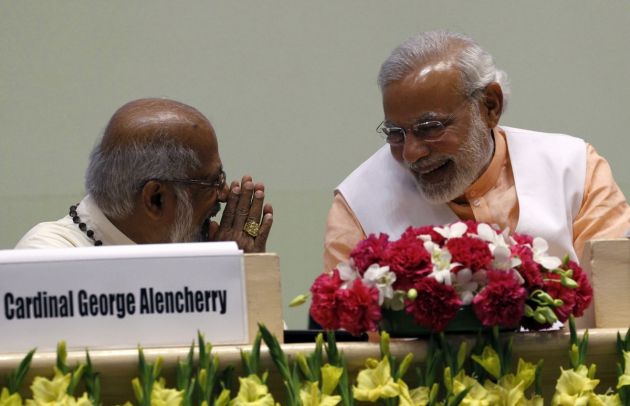Indian Christians support divorce law change, but churches undecided

Many Christians in India are hailing a government offer to change the divorce law, saying it would help reduce the agony of couples suffering in a failing relationship.
And despite the government saying it seeks the backing of Christians to push the law through church organizations seem unwilling to take a stand on the issue, the Catholic outlet ucanews.com reports.
The Indian government had filed a document in the Supreme Court expressing its willingness to change the Christian Divorce Act.
It offered in the affidavit to do away with a clause stipulating a two-year separation period before Christian couples can file for divorce.
The government offer followed a recent petition filed by a Christian man seeking to reduce the separation period to one year.
Petitioner Albert Anthony said the two-year separation period discriminated as the separation periods for other religions such as Hindus and Parsis are only one year.
However, the government told that court it would only make the change if a sizeable majority of Christians wanted it.
In a related case, India's Supreme Court on Aug. 27 admitted a petition seeking a direction that orders passed by church or ecclesiastical courts be legally binding, The Times of India reported.
SUPREME COURT AGREES TO ADJUICATE PETITION
Judges Anil R. Dave and Adarsh K. Goel agreed to adjudicate the issue after the petitioner pleaded that many Catholics, who re-married after getting divorces from ecclesiastical courts under Canon law, face charges of bigamy as law courts did not recognize the divorce.
Petitioner Clarence Pais, an ex-president of a Catholic association in Karnataka, said Islamic laws allow Muslim couples to divorce legally.
"The court should declare that Canon law is the personal law of Indian Christians and that decree of dissolution of marriage granted by ecclesiastical court is valid and binding as Indian Catholics are governed by the code of Canon law both regarding marriage as also its dissolution," said former attorney general Soli Sorabjee, appearing for Pais.
Laila Pasha, a women's activist based in Bangalore, told ucanews.com a change in the divorce law would bring relief to many couples.
"There are many cases where women are subjected to domestic violence, physical and sexual abuse, denial of property ... in a relationship and the two-year separation period is only an extension of the violence she is already suffering," said Pasha, who is Christian.
The government has thrown the ball in "our court and the Christian community along with Church leaders should respond to this in a positive way," she said.
Virginia Saldanha, a women's rights activist in Mumbai, said women in India do not go for divorce easily; they take the step only when all other means of reconciliation with their partners are exhausted.
"So, why prolong the agony. If a person does not want to be in a marriage, a two-year separation period is not going to bring any changes in his or her relationship," she added.
John Dayal, a lay Christian leader, told ucanews.com the discrimination through the existing law needs to be dealt with.
"If couples seek a divorce, then it is not fair that Christian couples have to wait for two years while those from other religions only have a one-year separation period," said Dayal, a member of ucanews.com's board of directors.
Christian women have demanded this for quite some time and "it should be granted to them."
However, both Catholic and Protestant church leaders were reluctant to comment on a possible change to the law.
Jose Abraham, a member of the Committee for Law and Public Interest Litigation of the Catholic Bishops' Conference of India, said the conference does not have any official stand on the issue.
"If the government asks us about it, we would reply but as of now we have no stance on this issue," Abraham told ucanews.com.
The National Council of Churches in India, an ecumenical grouping of Protestant and Orthodox churches, said its members were split on the issue.
"We might take up this issue during our meeting next month and would try to reach a consensus," said Samuel Jayakumar of the council.
A senior Catholic churchman who did not want to be named said the Church is deliberately not taking a stand because Church leaders see the government "playing games" by raising the possibility of the amendment.
The governing pro-Hindu Bharatiya Janata Party has clamoured for a common civil code for all Indians, regardless of religions.
Courts have also issued judgments moving toward ending religion-based laws.
"If the Church supports doing away with this clause making it equal for all regardless of religions, that can be easily interpreted as the Church supporting a common civil code and scrapping religion-based personal laws," the churchman said. "The Church has to be cautious."